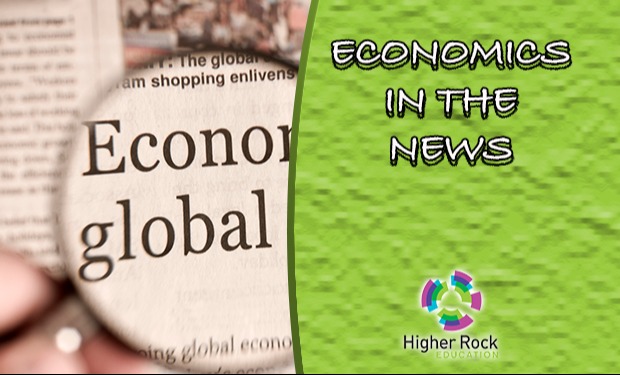
Economics in the News – Nov. 10-16, 2025
Economics impacts our lives every day. Below are some of the top storylines from this past week related to economics.
o Some Americans who bought their first homes during the peak of the pandemic and secured all-time low interest rates are feeling trapped with their homes. According to an Intuit Credit Karma survey, nearly 25 percent of those first-time homebuyers regret their decision to purchase during that time period, including 38 percent of millennials. They cite underestimating the costs of home ownership and have admitted to postponing other life goals.
With many having a sub-three percent rate locked in on a 30-year mortgage along with the amount of equity built up in the home, they can’t justify selling for a mortgage that’s twice as high. [The New York Times]
o After 232 years, the final penny has been minted in Philadelphia. The decision to stop producing the penny was due to its increasing irrelevance and the cost, according to the Treasury Department. The penny cost three cents to mint and nothing could be bought with a penny.
Throughout its time in history, the penny became synonymous with frugality and saving money. The penny has been minted in the United States since 1793 when Alexander Hamilton – the first Treasury Secretary – authored the coinage act. The United States previously stopped minting half-cent coins in 1857, while Canada stopped producing its penny in 2012. There are still 250 billion pennies in circulation, but as they slowly disappear businesses will start rounding transactions to the nearest nickel when handling cash. [The New York Times]
o The longest government in American history came to an end after lasting 43 days. While federal workers are faced with playing catch up on the work missed during the shutdown, the federal government will soon be back to normal. Federal workers should be paid quickly, and are ensured back pay after that came into question during the shutdown.
President Donald Trump has overseen the two longest government shutdowns in American history, with the most recent shutdown lasting eight days longer than the 35-day shutdown in Jan. 2019. The end of the shutdown means reprieve for the airline industry, after working short-staffed and airlines were dealt with an abundance of flight delays and cancellations. However, experts warned passengers to expect continued delays while the industry recovers. SNAP benefits will be distributed to the states, but food-aid groups said that the timeline for when the funds are distributed remains up in the air. During the shutdown, the Trump administration declined to finance food benefits for the 42 million SNAP recipients. [The Wall Street Journal]
o Disney and Alphabet ended its high-profile dispute, as ESPN and ABC returned to YouTube TV in time for college football Saturday. The deal ended a dispute that lasted for two weeks, blacking out access for YouTube TV subscribers for college football, college basketball, and NFL games.
The new deal between the two entities is a multiyear agreement and YouTube TV subscribers will gain complimentary access for ESPN’s new direct-to-consumer product, ESPN Unlimited. In addition, YouTube TV subscribers can claim a $20 credit that was offered due to the dispute until Dec. 9. [The Washington Post]
o Former Treasury Secretary Janet Yellen – a democrat – warns that Americans could pay dearly for the actions of President Donald Trump’s administration. Yellen’s concerns stem from the idea that capitalism depends on consistent application of the law, and going away from that could cause domestic and foreign businesses to opt not to make investments. Yellen also objects to the Trump administration’s demands for lower interest rates, a long-held convention that elected officials shouldn’t be involved in monetary policy.
Yellen also warns of risks in the US university system, citing that the current administration has threatened to withhold federal due to liberal teachings and the enrollment foreign students. That would put numerous research projects at risk. Yellen is the only person to occupy all three of the top economic policymaking posts in the United States – chair of the Federal Reserve, secretary of the Treasury, and chair of the White House Council of Economic Advisors. [Bloomberg]